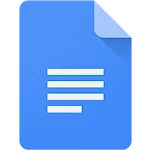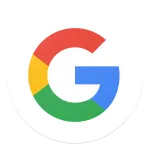Top 10 Google Tools
Top Google Tools include Google Analytics, which is a powerful tool that provides website owners with detailed insights into their website's performance, user behavior, and traffic sources. Another top Google tool is Google Search Console, which helps website owners monitor and maintain their site's presence in Google's search results.
Google Analytics is a free tool that allows website owners to track and analyze their website's traffic and user behavior. It provides valuable data on user demographics, user engagement, and the effectiveness of marketing campaigns. With this information, website owners can make informed decisions to optimize their website and improve their online presence. On the other hand, Google Search Console is a free tool that helps website owners monitor, maintain, and troubleshoot their site's presence in Google search results. It provides data on search queries, click-through rates, and website performance, allowing website owners to identify and fix issues that may be affecting their site's visibility in Google search. Both Google Analytics and Google Search Console are essential tools for website owners looking to improve their website's performance and visibility online.

 View All
View AllGoogle Trends - Real-time data on popular search topics.

 View All
View AllGoogle Keep - Note-taking app for organizing thoughts and tasks.

 View All
View AllGoogle Analytics - Website analytics tool to track and analyze visitor behavior.

 View All
View AllGoogle Calendar - Online calendar for scheduling and organizing events and tasks.

 View All
View AllGoogle Docs - Online collaborative word processing tool by Google.

 View All
View AllGoogle Drive - Cloud-based file storage and collaboration platform.

 View All
View AllGoogle Mail (Gmail) - Email service with storage and search capabilities.

 View All
View AllGoogle Adwords Keyword Planner - Keyword research tool for planning ad campaigns.

 View All
View AllGoogle Alerts - Email notifications for customized search queries.

 View All
View AllGoogle Correlate - Find search patterns related to data over time.
Top 10 Google Tools
1.
Google Trends
Pros
Provides real-time data on search trends
helps identify popular topics
aids in market research.
Cons
Limited to Google search data
may not represent overall trends
lacks detailed demographic information.
2.
Google Keep
Pros
Easy to use
syncs across devices
allows voice notes
reminders
and checklists.
Cons
Limited formatting options
lacks collaboration features
not suitable for complex note-taking or project management.
3.
Google Analytics
Pros
Comprehensive data tracking
easy to use
customizable reports.
Cons
Privacy concerns
limited real-time data
learning curve for advanced features.
4.
Google Calendar
Pros
User-friendly interface
integration with other Google services
easy sharing and collaboration
reminder notifications.
Cons
Limited customization options
occasional syncing issues
privacy concerns.
5.
Google Docs
Pros
collaborative
accessible from any device
automatic saving
real-time editing
easy sharing.
Cons
limited offline access
fewer advanced formatting options
potential privacy concerns.
6.
Google Drive
Pros
Easy to use
accessible from any device
collaborative features
Cons
Limited storage space
potential privacy concerns
7.
Google Mail (Gmail)
Pros
Large storage capacity
user-friendly interface
powerful search functionality
integration with other Google services.
Cons
Targeted ads based on email content
potential privacy concerns
occasional technical glitches.
8.
Google Adwords Keyword Planner
Pros
Free
detailed keyword insights
helps with budgeting.
Cons
Requires a Google Ads account
sometimes broad data
competitive metrics can be vague.
9.
Google Alerts
Pros
Provides real-time notifications for specified keywords
helps monitor online presence
and can be customized for specific needs.
Cons
May generate a high volume of alerts
some irrelevant results
and limited customization options compared to other monitoring tools.
10.
Google Correlate
Pros
Allows users to find search patterns and trends
provides insights for marketing and research purposes.
Cons
Limited availability of data
may not always provide accurate or reliable correlations.